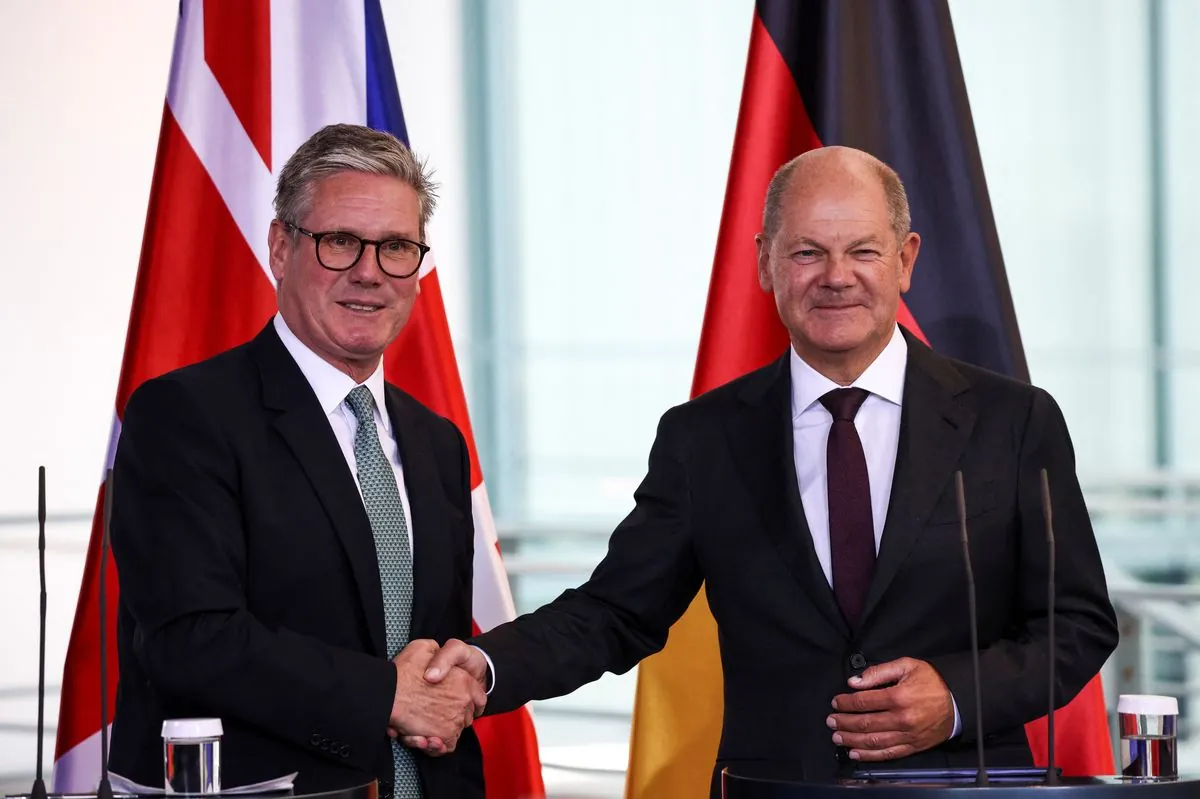In the aftermath of the 2016 Brexit referendum, the United Kingdom embarked on a complex journey to redefine its relationship with the European Union and its member states. Despite the desire to maintain strong ties with individual European countries, the process has been fraught with challenges.
Rishi Sunak's recent visit to Berlin, occurring over 8 years after the referendum, underscores the ongoing efforts to nurture bilateral relations with key allies. This trip comes at a time when both the UK and EU nations are grappling with economic difficulties, with some European economies, particularly Germany's, facing even greater challenges than Britain.
The visit highlights the delicate balance the UK must strike between asserting its independence and maintaining crucial partnerships. While Sunak campaigned against Brexit, his approach to these bilateral meetings should reflect the UK's current status as an independent nation rather than suggesting a need to "reset" connections with Europe.
Similarly, Sir Keir Starmer, who became Leader of the Labour Party in April 2020, has pledged not to seek Britain's return to the EU or join the single market and customs union. However, his approach to European relations must be carefully calibrated to avoid raising questions about his intentions.
The importance of strong UK-Germany relations cannot be overstated. As the EU's largest economy and the world's fourth-largest by nominal GDP, Germany plays a crucial role in European affairs. However, it's important to note that German Chancellor Olaf Scholz's ability to influence EU-wide policies is limited.
One area where improvements could be made is in cross-border travel arrangements. The new digital visa regime, requiring fingerprinting of non-EU citizens, poses challenges for UK travelers. Streamlining these processes could significantly enhance goodwill between the nations.
"I do not seek Britain's return to the EU nor to join the single market and customs union."
It's worth noting that the UK and Germany share a long history of cooperation, including their membership in NATO since its founding in 1949. This common ground in defense and security matters provides a solid foundation for continued collaboration.
As the UK continues to navigate its post-Brexit reality, it must leverage its position as the world's sixth-largest economy by nominal GDP to forge mutually beneficial relationships with EU countries. The goal should be to maintain the benefits of close cooperation while exercising the freedoms gained from leaving the EU's political and regulatory framework.
The path forward requires a delicate balance of asserting national interests and fostering good neighborly relations. As true friendly neighbors, both the UK and EU countries should work towards making cross-border arrangements less onerous, particularly when such requirements are not reciprocated for EU citizens entering Britain.
